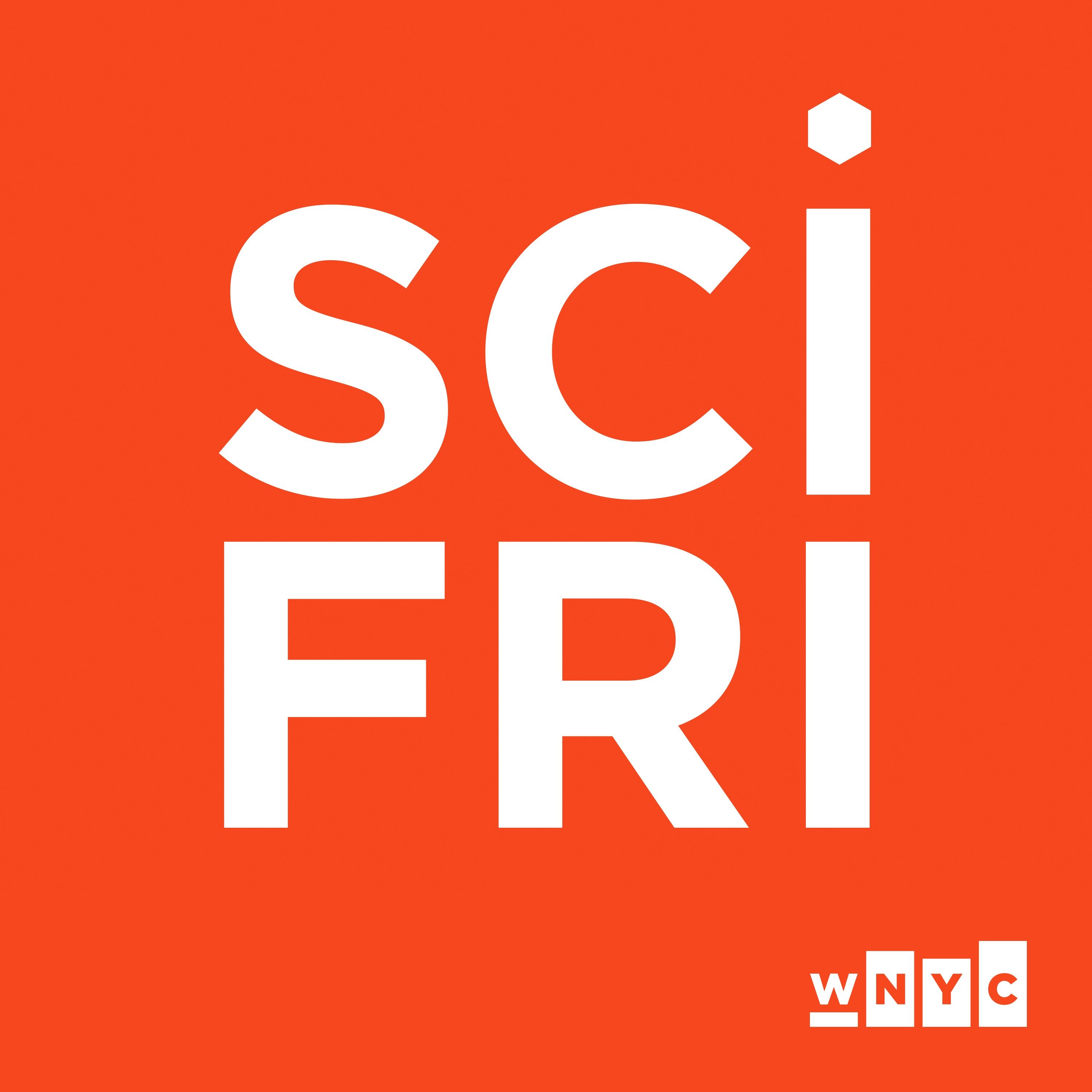

Science Friday
Science Friday and WNYC Studios
Covering the outer reaches of space to the tiniest microbes in our bodies, Science Friday is the source for entertaining and educational stories about science, technology, and other cool stuff.
Episodes
Mentioned books

Sep 8, 2025 • 19min
Octopuses Use Suckers To ‘Taste’ Harmful Microbes
In a fascinating discussion, Dr. Nicholas Bellono, a molecular biologist from Harvard, dives into the remarkable sensory systems of octopuses. He reveals how these creatures use their suckers not just for grabbing, but for 'tasting' their environment, especially to detect harmful microbes on crab shells. This unique ability impacts their feeding and reproductive behaviors. The conversation also touches on the intriguing sensory structures in their arms and how these adaptations redefine our understanding of octopus intelligence and interaction with their surroundings.

8 snips
Sep 5, 2025 • 14min
After CDC Director Is Ousted, More Senior Officials Resign
Dr. Demetre Daskalakis, former director of the CDC's National Center for Immunization and Respiratory Diseases, shares insights on the fallout from the abrupt dismissal of CDC director Susan Monarez. He discusses the leadership crisis at the agency and the ensuing resignations that underscore tensions between science and politics. The conversation highlights growing skepticism towards vaccine guidance and the implications for public health. Daskalakis emphasizes the urgent need to restore trust in science and the challenges posed by dehumanization of scientists.

27 snips
Sep 4, 2025 • 19min
Meet 3I/Atlas, An Object From Another Solar System
Join astrochemist Stefanie Milam from NASA, a key player in the James Webb Space Telescope mission, and Dr. Jessica Barnes from the University of Arizona, an expert on asteroid origins, as they dive into the intriguing interstellar object 3I/ATLAS. They discuss its rare composition and what it can reveal about planetary systems. They also explore groundbreaking findings from asteroid Bennu, including stardust that pre-dates our solar system, offering amazing insights into cosmic history and the formation of celestial bodies.

Sep 3, 2025 • 13min
How Common Household Products Pollute Our Indoor Air
In this enlightening discussion, Nusrat Jung, a civil and environmental engineer at Purdue University, unveils the surprising dangers of indoor air pollution from common hair care products. She reveals how styling products can emit harmful nanoparticles that jeopardize our health, especially during heat styling. Jung also shares practical tips for improving indoor air quality, emphasizing the need for better ventilation and awareness around everyday routines. Her insights encourage a rethink of our grooming habits for a healthier home environment.

Sep 2, 2025 • 18min
The Shape-Shifting Science Of Sand Dunes
Nathalie Vriend, an associate professor in mechanical engineering at the University of Colorado, studies the fascinating world of sand dunes. She shares how sand dunes transition between solid and fluid states, revealing their unique physical properties. The podcast also explores the enchanting phenomenon of singing sand dunes and the scientific principles behind their sounds. Additionally, Vriend addresses the challenges posed by mobile dunes to nearby communities and discusses innovative methods like satellite tracking used to study these dynamic geological structures.

22 snips
Sep 1, 2025 • 18min
Food Science Experts On Perfecting At-Home Ice Cream
Jeff Potter, author of Cooking for Geeks, shares his ice cream expertise, guiding listeners through the science of crafting the perfect scoop at home. He explains how microstructures like ice crystals and air bubbles create smooth textures. Potter tips on achieving optimal creaminess include the right ingredient interactions and methods, from traditional techniques to using liquid nitrogen. Discover why ice cream sandwiches hold their shape and the role of salt in freezing. It's a delightful mix of science, history, and delicious home-cooked treats.

Aug 29, 2025 • 25min
An ER Doctor Reflects On Hurricane Katrina, 20 Years Later
Emergency medicine physician Erica Fisher shares harrowing tales from her time at Charity Hospital during Hurricane Katrina, reflecting on the chaos, courage, and emotional challenges faced by healthcare workers. She emphasizes the lessons learned about disaster preparedness and the ongoing vulnerabilities in our healthcare systems. Science writer Maggie Koerth discusses the intriguing connections between heat waves and aging, updates on COVID vaccine guidelines, and the potential for ancient life on the dwarf planet Ceres.

17 snips
Aug 28, 2025 • 19min
An Archaeologist And A Tattoo Artist Decipher Ancient Ink
Join archaeologist Aaron Deter-Wolf, who studies ancient body modification, and tattoo artist Danny Riday as they explore the intriguing world of ancient tattoos. They discuss the incredible revelation of a 2,300-year-old Siberian woman's tattoos, shedding light on cultural beliefs and artistry. The duo examines how ancient ink reflects identity and status, especially among Scythian women. They also highlight the evolving significance of tattooing from ancient times to modern artistry, revealing how it shapes individual and cultural expression.

8 snips
Aug 27, 2025 • 13min
What Lies Beneath The Outer Layers Of A Star?
Astrophysicist Steve Schulze, a research associate at Northwestern University’s Center for Interdisciplinary Exploration and Research in Astrophysics, discusses groundbreaking discoveries about supernovae. He reveals what lies beneath the hydrogen and helium of stars, particularly in the case of supernova 2021yfj, which showcased a silicon- and sulfur-rich inner shell after its outer layers were stripped away. Schulze compares the structure of stars to a cosmic onion, uncovering layers of complexity and intriguing questions about stellar composition and evolution.

9 snips
Aug 26, 2025 • 13min
How Have Gray Wolves Fared 30 Years After Reintroduction?
Heath Druzin, host of the podcast "Howl" from Boise State Public Radio and The Idaho Capital Sun, dives into the gray wolf's journey in the Western U.S. He discusses the dramatic recovery since their reintroduction in 1995, alongside the emotional and polarizing views humans have toward these majestic creatures. Druzin highlights the Nez Perce Tribe's critical role in wolf management and the ongoing challenges they face with hunting regulations. The conversation offers insights into the ecological benefits of wolves and the complexities of wildlife preservation.


